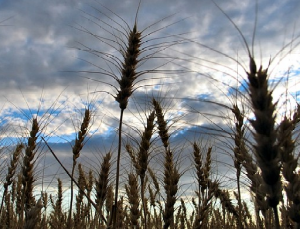- 2 reads

Gaze out across a New York dairy farm, a Kansas wheat spread or a field of tomatoes in California's Salinas Valley, and you might think of the folks who grow America's food as natural born environmentalists.
Who has more at stake, after all, in clean water, healthy soil and a hospitable climate, than the men and women -- more than 1.4 million of them -- who work the land to feed the country?
In too many ways, though, farmers and environmentalists have been talking past each other, especially when it comes to the manifest benefits we can all reap from the new clean energy economy this country needs.
That was the heart of the message delivered by Agriculture Secretary Tom Vilsack, who delivered the keynote address Wednesday at the NRDC quarterly board meeting in Washington.
Farmers and environmentalists, said Vilsack, share a lot of common ground; if only we'd learn how to talk to each other better.
"They really do need to talk to you," said Vilsack. "And you need to talk to them."
Clean energy and climate legislation can be a boon to farmers, said Vilsack, by helping make it feasible to install wind turbines, for instance, on farmland, or enabling farmers to capitalize on the use of biofuels made from switchgrass, manure or corn waste.
He cited a Virginia facility that makes ethanol fuel from cow manure, producing organic fertilizer as a byproduct of the process.
"That's an opportunity to really improve the bottom line," for farmers, he said. "We need to accelerate the research on this."
A former two-time governor of Iowa, Vilsack knows a thing or two about American farmers. In some ways, he said, they're under siege.
Half of the country's rural counties have lost population over the past two decades, he said.
"The people who are left in rural American are, by far, less educated, so they have much higher poverty and much higher unemployment rates," than the country overall. "These folks feel threatened ... and they feel unappreciated."
We in the environmental community struggle with some aspects of modern American farming. The heavy reliance on pesticides, which can be toxic, for instance, genetically-altered seeds and fertilizer, which can pollute our waterways, create algae blooms and kill aquatic life.
As a nation, though, we have broadly accepted these practices - within limits, of course - as part of the price for productivity gains that have kept food supplies plentiful and affordable in this country. So when we rightly insist on mitigating the impact some farming practices have on our air, water and lands, said Vilsack, it's important that farmers not feel singled out for blame.
"What they face is tough," he said. "The last thing they want to hear is for someone to talk about how much more they care about the environment than the farmer does."
In fairness, part of our communication lapse has been intentionally fostered by the oil companies and coal companies that have spent scores of millions of dollars trying to defeat the clean energy legislation that would help put Americans back to work - on the farm and off.
"The other side did a great job of playing to the fears of farmers that their fertilizer costs were going to go through the roof and their fuel prices were going to go through the roof," said Vilsack.
Those shameful scare tactics found fertile soil in the hard times befalling the family farm, 40,000 of which have disappeared over just the past five years.
We hope that farmers will see the benefit that clean energy legislation can provide and will look for ways to share common ground where our interests intersect. For instance, it can help to ensure a bright future for the American farm by striking a blow against the carbon pollution causing climate change. And it can make farming more cost-effective by harnessing the technologies we need to build the next generation of energy-efficient cars, homes and workplaces.
In three and a half decades on the front lines of environmental advocacy, I've been drawn close to the land.
"I've seen that same kind of passion with farmers," said Vilsack. "I'd like to think we can develop a line of communication, an opportunity for dialogue."
After all, he said, "We all kind of want the same thing."
This post originally appeared on NRDC's Switchboard.
Frances Beinecke is President of Natural Resources Defense Council in New York. She started with NRDC in 1973 with a background in environmental studies and did extensive work to preserve forests. Eventually, she became executive director and then president in 2006. NRDC is a non-profit organization dedicated to protecting the environment, people and animals. NRDC was founded in 1970 and is comprised of more than 300 lawyers, scientists and policy experts, with more than one million members and e-activists.

